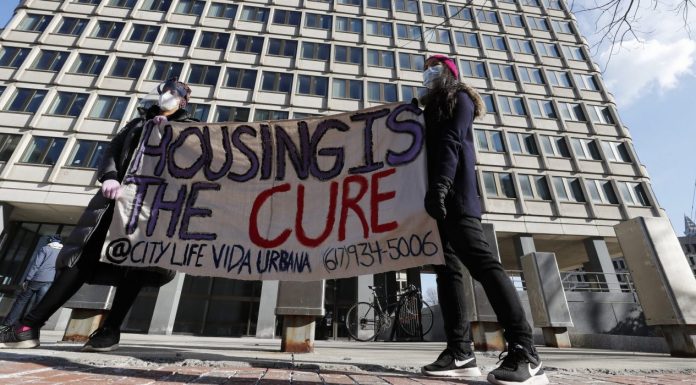(Headline USA) A federal judge ruled Wednesday that the Centers for Disease Control and Prevention exceeded its authority when it imposed a federal eviction moratorium.
“The question for the Court is a narrow one: Does the Public Health Service Act grant the CDC the legal authority to impose a nationwide eviction moratorium? It does not,” U.S. District Court Judge Dabney Friedrich wrote in a 20-page ruling.
“The pandemic has triggered difficult policy decisions that have had enormous real-world consequences,” Friedrich said. “The nationwide eviction moratorium is one such decision.”
The Justice Department said it would appeal the ruling from the U.S. District Court in Washington, D.C., meaning for now there won’t likely be any immediate impact on the ban, which in March was extended through the end of June.
The order was initially imposed as part of the CARES Act in March 2020, but was only intended as a temporary, short-term fix, the Epoch Times noted.
Opponents of the moratorium, including the National Association of Realtors, welcomed the decision and said the solution was rental assistance, not a ban on evictions.
“This prevents two crises—one for tenants, and one for mom-and-pop housing providers who do not have a reprieve from their bills,” the president of the realtors association, Charlie Oppler, said in a statement.
“With rental assistance secured, the economy strengthening, and unemployment rates falling, there is no need to continue a blanket, nationwide eviction ban,” he said.
The Alabama and Georgia associations of realtors were among the plaintiffs in the case.
The eviction ban, initially put in place last year, provides protection for renters out of concern that having families lose their homes and move into shelters or share crowded conditions with relatives or friends during the pandemic would further spread the highly contagious virus.
Proponents claim it is necessary since the pandemic is still a threat and so many people are at risk of eviction or foreclosure.
Nearly 4 million people in the U.S. said they faced eviction or foreclosure in the next two months, according to the Census Bureau’s Household Pulse Survey.
The eviction moratorium “protects many renters who cannot make their monthly payments due to job loss or health care expenses,” Brian M. Boynton, acting assistant attorney general for the Justice Department’s Civil Division, said in a statement announcing the department’s decision to appeal the court ruling.
“Scientific evidence shows that evictions exacerbate the spread of COVID-19, which has already killed more than half a million Americans, and the harm to the public that would result from unchecked evictions cannot be undone,” he added.
Congress has allocated more than $45 billion in rental assistance, but the “abolish rent” activists claim that much of that hasn’t reached needy tenants.
Eric Dunn, the director of litigation for the National Housing Law Project, said most of the rent relief programs only started in late March and early April.
“It feels like the pandemic, at least in the U.S., is coming to an end but it’s not over yet,” he said. “If we have a wave of mass evictions, it could really set us back.”
The ruling Wednesday is just the latest court decision on the moratorium.
Landlords in several states have sued to scrap the order, arguing it was causing them financial hardship and infringing on their property rights.
They remain opposed to any extension, saying it does nothing to address the financial challenges facing renters and landlords.
There are at least six prominent lawsuits challenging the authority of the CDC ban.
So far, three judges have sided with the ban and three have ruled against, with all cases currently going through appeals. One judge in Memphis declared the CDC order unenforceable in the entire Western District of Tennessee.
Dunn worries that the sweeping nature of this ruling—which clearly states that it applies nationally—could embolden landlords in some states to push ahead with evictions during the appeals process.
“Just practically there could be some landlords that maybe thought the prior decision didn’t apply to them or they couldn’t rely on those and may choose to rely on this one,” he said.
“There could be some broader effect for that reason, but I think technically it’s still the same,” he added. “None of the federal court decisions are binding on state court judges that actually hear eviction cases.”
Adapted from reporting by the Associated Press

